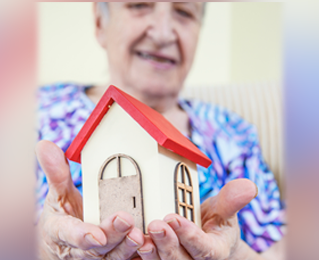[Tmdl.edu.vn] Financial institutions have introduced niche products like home loans for women, and reverse mortgage for senior citizens. Here’s a lowdown on the offerings
Home loans for women
The government and moneylenders are offering special treatment to women, which is leading to an increase in the number of ladies owning homes. Various state governments also provide concessions in stamp duty (ranging from 1% in Rajasthan to 2% in Delhi) on the purchase of a house by a woman. For instance, companies like Aspire Home Finance Corporation (Aspire), the housing finance arm of Motilal Oswal Financial Services, have launched a home loan division, especially for women that’s also operated by women.

var adpushup = window.adpushup = window.adpushup || {};
adpushup.que = adpushup.que || [];
adpushup.que.push(function() {
adpushup.triggerAd(“4cbc6643-b533-4344-bc4b-1c337dc43234”);
});
The interest on such housing loans is relatively lower, by at least 0.05% than those acquired under normal categories. For availing this concession, a woman needs to be the first applicant on the documents and should be the sole or joint-owner of the house. She should be an independent earner and can make any other individual, including a qualified male like her husband, to join as a co-borrower. The number of earning independent women across industries, is steadily growing. This has led to an increase in their desire to own homes, hence, the demand for such niche products is slated to grow as well.
[Tmdl.edu.vn] Home loans from SBI, ICICI will now be cheaper
However, there are certain factors which can hinder the demand for women to take home loans. For instance, the stamp duty concession available to a woman, is applicable only when she’s the sole owner of the home or her joint-owner is another woman. Plus, the tax benefits of a home loan cannot be claimed if her joint-borrower is a man (her husband) unless he is also a joint-owner. In these circumstances, unless a woman is able to obtain the required loan amount based solely on her own income, the demand for such schemes may lose traction.
Moreover, the amount of money that is obtainable through women’s home loan schemes is very low. For instance, schemes like MALA (Mahila Aawas Loan from Asipre) provide loans ranging from Rs 2 to 12 lakhs which is absolutely insufficient to buy real estate in any major, tier-2 or even tier-3 city. Thus, it may not cater to the needs of serious women who seek home loans. Furthermore, the number of working women who can avail of a home loan, is not substantial in areas where homes are less expensive. Therefore, the demand for such schemes may not be viable in such locations.
Additionally, there are other reasons related to the uncertainty surrounding a woman’s career, for example childbirth. A large portion of women who work, may not be willing to commit themselves to a home loan, when their career path is not certain.
Reverse mortgage for senior citizens
A reverse mortgage is a scheme that was introduced to help senior citizens get a steady income after retirement. This amount is determined by the ownership of property without having to vacate the said premises. Unfortunately, despite being well-intentioned, the scheme has not been largely successful due to a number of reasons. Primarily, it is a cultural issue where parents do not want to mortgage their residential property or leave behind debt for their children. Also, reverse mortgages are not aggressively marketed by banks and housing finance companies, as it is done for home loans.
The monthly payments received from the bank or the housing finance company under the reverse mortgage schemes, are not taxable. However, in case a senior citizen opts for annuity from an insurance company, that income does become taxable. So, the government must abolish this anomaly, and make the pension received through an annuity purchased under reverse mortgage, tax exempt, in order to make such financial schemes attractive to senior citizens.
(The author is a taxation and home finance expert, with 30 years’ experience)
Source: https://tmdl.edu.vn/us
Copyright belongs to: Tmdl.edu.vn





